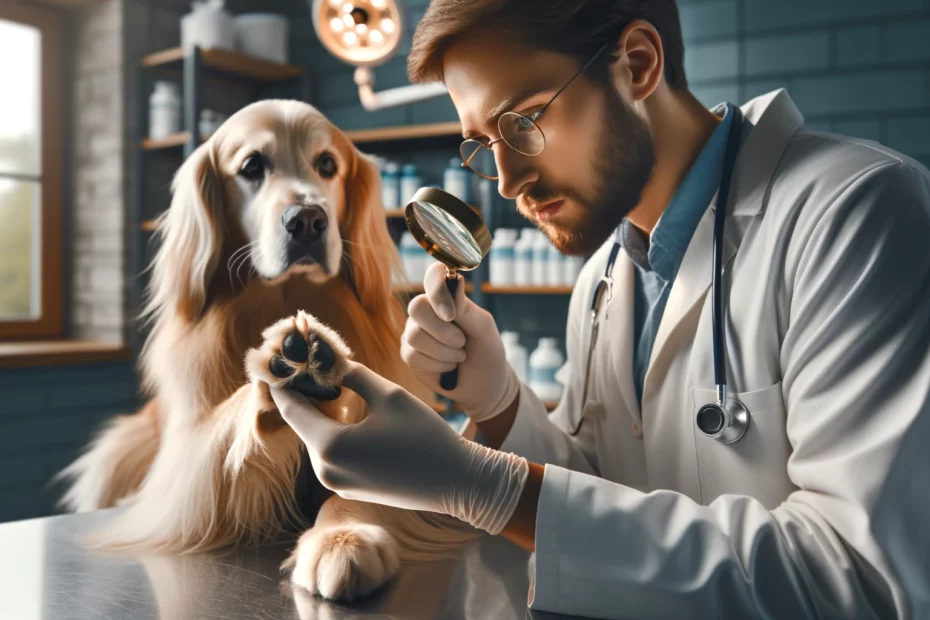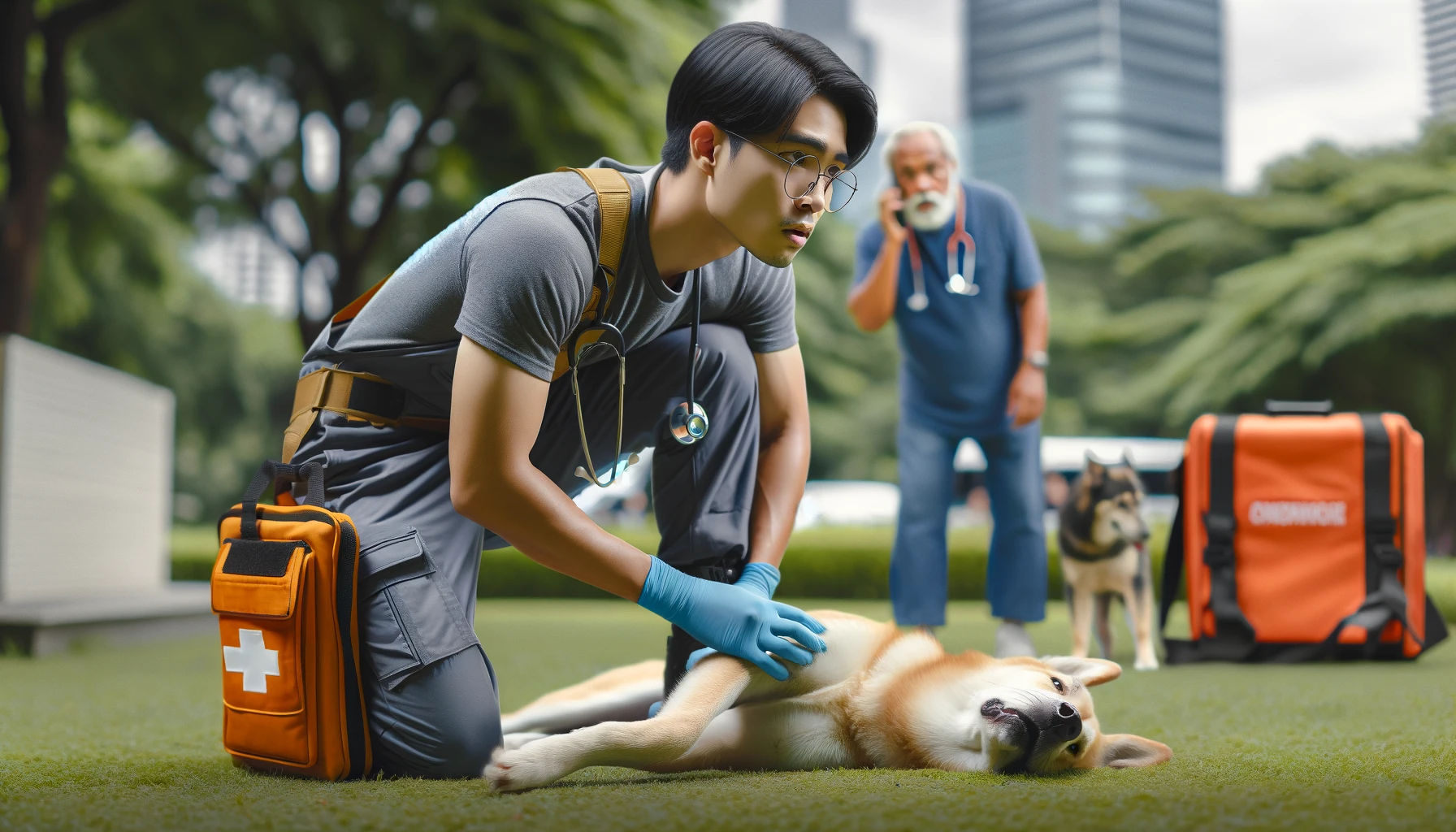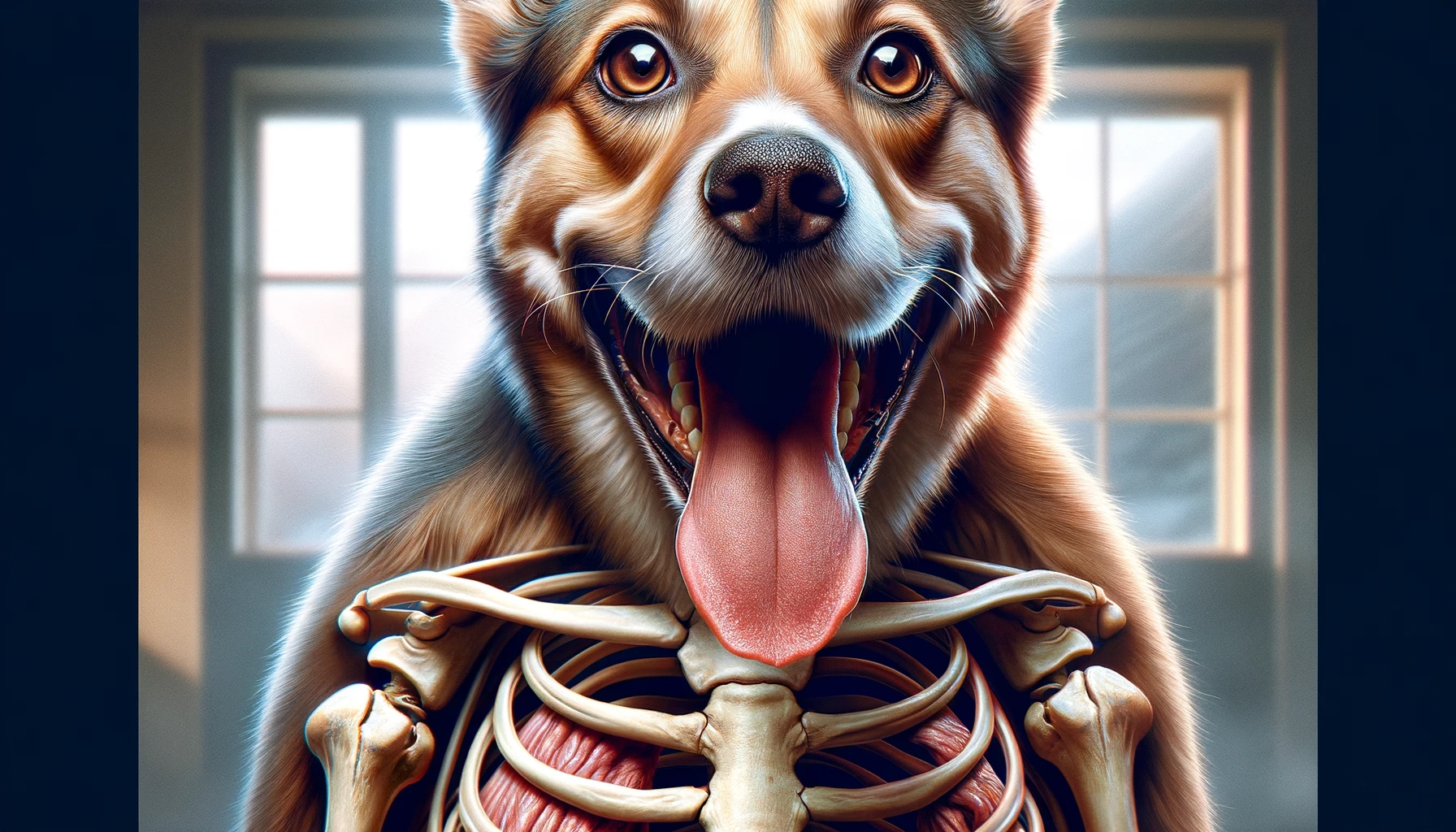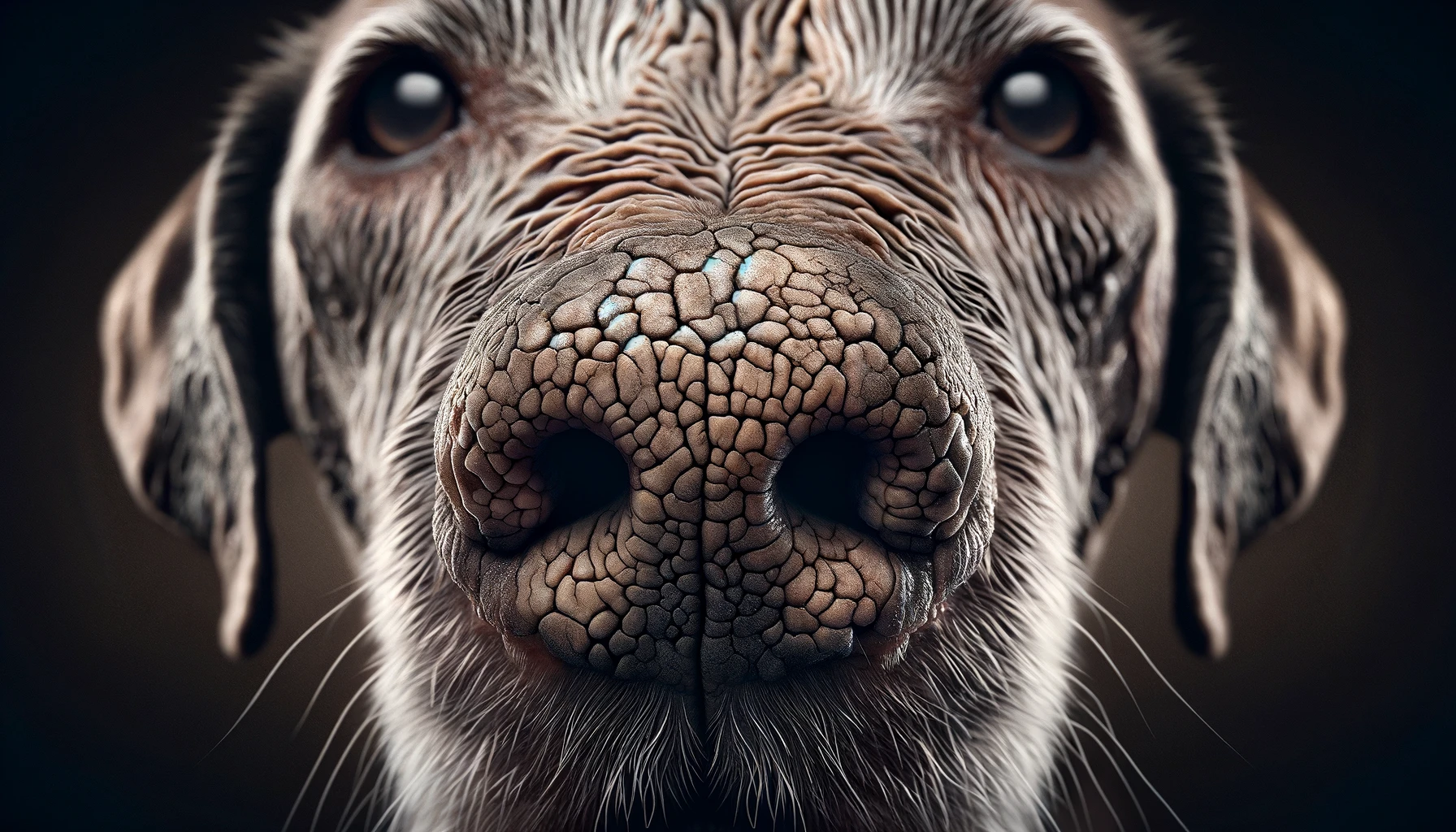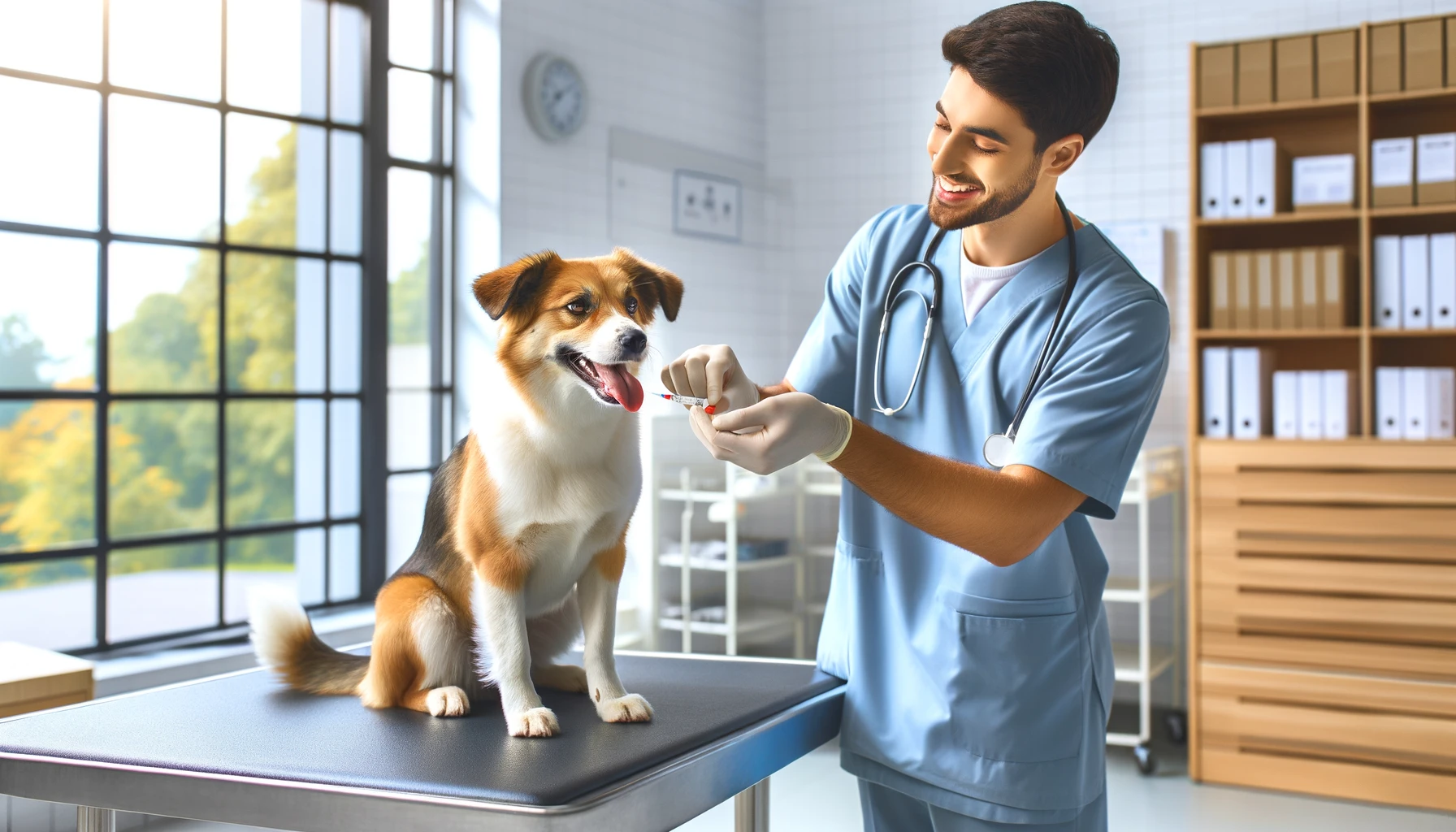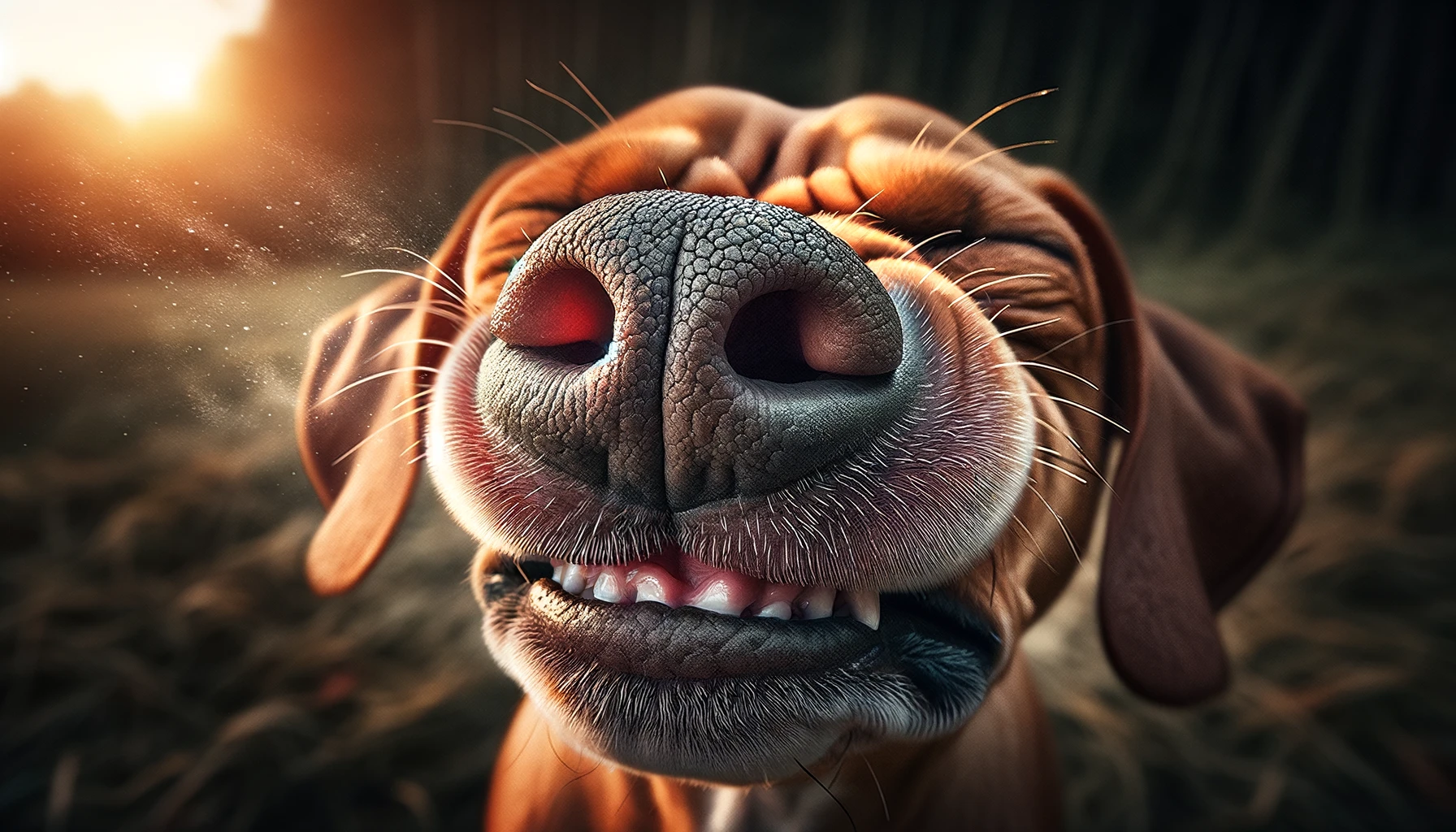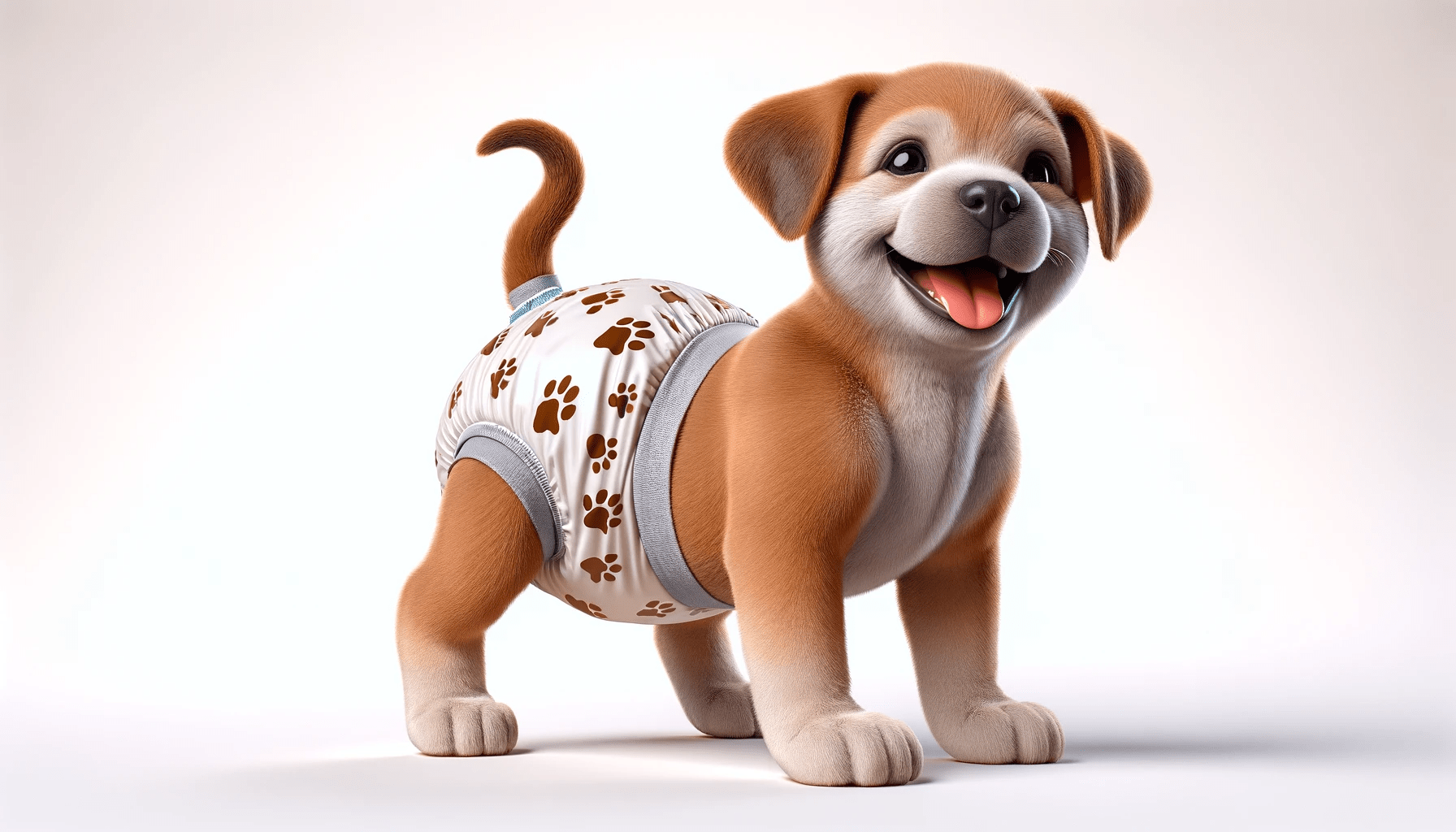Tired of your furry friend incessantly licking their paws? Well, you’re in luck! This short guide will help you put an end to that pesky paw-licking habit.
We all know how important it is for dogs to maintain proper hygiene, but excessive licking can be a sign of an underlying issue. By identifying the root cause, implementing some simple strategies, and seeking professional help if necessary, you can ensure your dog’s paws are itch-free and healthy.
So, let’s dive in and discover the secrets to stopping your dog from licking their paws. Your pup will thank you, and you’ll both enjoy a paw-tastic time together!
Key Takeaways
- Identifying the root cause of excessive paw licking is important in order to effectively address the issue.
- Allergies, irritants, anxiety, and boredom are common underlying issues that can contribute to excessive paw licking.
- Proper diagnosis, treatment, and preventive measures are crucial in addressing allergies, irritants, anxiety, and boredom.
- Seeking help from professionals such as trainers or behaviorists can be beneficial in finding effective solutions and ensuring the well-being of the dog.
Common Causes of Paw Licking
To stop your dog from licking their paws, it’s important to understand the common causes behind this behavior. Excessive paw licking can be a symptom of various underlying issues.
One common cause is a yeast or bacterial infection. If your dog’s paws are red, swollen, and emit a foul odor, it may indicate an infection.
Another possible cause is dry skin in dogs, which can lead to itchiness and discomfort, prompting your dog to lick their paws for relief.
Stress, anxiety, and boredom can also trigger this behavior, as dogs may lick their paws to self-soothe or entertain themselves.
Additionally, pain, injuries, or arthritis can contribute to paw licking, as dogs instinctively lick and clean wounds or areas of discomfort.
It’s crucial to identify the root cause of your dog’s excessive paw licking to address the issue effectively. If you suspect a skin condition or infection, it’s best to consult a veterinarian for proper diagnosis and treatment.
However, if the cause is stress or boredom, providing mental stimulation, exercise, and interactive toys can help redirect your dog’s attention and curb their paw licking habit.
Identifying the Underlying Issues
Now it’s important to identify the underlying issues that may be causing your dog to lick their paws excessively.
Firstly, consider if allergies or irritants could be the culprit, such as certain foods or environmental factors.
Additionally, anxiety or boredom can lead to this behavior, so evaluate your dog’s overall mental and physical stimulation.
Lastly, it’s crucial to rule out any potential medical conditions that may be present, as these can also contribute to paw licking.
Allergies or Irritants
You can identify the underlying issues of allergies or irritants by examining your dog’s environment and diet.
Allergies are a common cause of paw licking in dogs, and they can be triggered by both food and environmental factors. Food allergies occur when your dog’s immune system reacts to certain ingredients in their diet.
Environmental allergies, on the other hand, can be caused by pollen, mold, or dust mites. These allergies can lead to itching or irritation of the skin, including the paw pads. Excessive licking of the paws can also result in secondary bacterial or yeast infections.
Anxiety or Boredom
One way to identify the underlying issues of anxiety or boredom in your dog is by observing their behavior and daily routine. Dogs lick their paws for various reasons, and anxiety or boredom can be one of them. If you notice that your dog frequently licks their paws, especially when they aren’t engaged in any activities, it may be a sign of anxiety or boredom.
Dogs have a strong instinct to lick, and they may do so as an attempt to relieve their stress or boredom. Additionally, excessive licking can cause a secondary bacterial or yeast infection, leading to redness, swelling, and a foul smell. If you observe your dog chewing or licking their paws excessively, it’s important to address the underlying anxiety or boredom to prevent further health problems.
Medical Conditions Present?
To identify the underlying medical conditions causing your dog’s paw licking, assess for signs of itchiness, irritation, or pain, which may indicate allergies, infections, or injuries.
Excessive licking of the paws can be a result of various medical conditions such as yeast infections, bacterial infections, or allergies. Yeast infections can occur secondary to allergies or for unknown reasons, causing your dog’s paws to become itchy and irritated.
Bacterial infections can also lead to paw licking, often occurring due to allergies or other underlying factors. If your dog’s paws are red, swollen, or have open sores, it could indicate an infection that needs to be treated by a veterinarian.
Itchy paws can be a symptom of allergies, including food and environmental allergies, which require proper diagnosis and management. If your dog’s paw licking is persistent or accompanied by other symptoms, it’s important to consult with a veterinarian to identify and address any underlying medical conditions.
Home Remedies for Paw Licking
To stop your dog from licking their paws, start by rinsing the dirty paws with cool water and using grooming wipes to keep them clean and irritant-free. Licking paws can be a sign of discomfort or irritation, so it’s important to address the underlying cause.
One home remedy to soothe and soften your dog’s paws is to use an all-natural balm like Paw Soother. This balm is specifically designed to moisturize and nourish dry, cracked paws, providing relief from itching and irritation.
Regular grooming is also essential in preventing excessive paw licking. By keeping the paws clean and free from irritants, you can reduce the need for your dog to lick them.
Additionally, providing your dog with mental and physical stimulation can help reduce stress and boredom, which are common triggers for excessive licking.
Finally, if your dog’s paw licking persists, you can try using deterrent sprays or bitter-tasting products on the paws to discourage the behavior. These products create an unpleasant taste that can deter your dog from licking their paws.
Behavioral Strategies to Stop Paw Licking
Try implementing behavioral strategies to stop your dog’s paw licking. Dogs often lick their paws due to various reasons such as stress, boredom, or even allergies.
The first step is to identify the underlying cause of your dog’s paw licking behavior. Provide mental and physical stimulation to reduce stress and boredom, which are potential triggers for excessive licking. Engage your dog in interactive play sessions, provide puzzle toys, and take them for regular walks to keep them mentally and physically stimulated.
Additionally, use positive reinforcement and behavior modification techniques to redirect your dog’s attention away from paw licking. Reward them with treats and praise when they engage in other activities instead of licking their paws. Consistency and patience are key in implementing these strategies.
If behavioral strategies alone don’t yield desired results, it may be necessary to seek professional help from trainers or behaviorists who can provide specialized training programs to address the underlying causes of stress, anxiety, and boredom.
Preventive Measures for Paw Licking
To prevent your dog from licking their paws excessively, there are a few key points to consider.
First, it’s important to determine the underlying causes of the behavior, such as allergies or boredom.
Next, implementing proper hygiene, like regular grooming and maintaining a clean environment, can help reduce irritants that may trigger paw licking.
Determining Underlying Causes
To determine the underlying causes of your dog’s paw licking, examine possible allergies, injuries, infections, and behavioral factors.
Allergies can make your dog’s paws itchy, leading to excessive licking. Keep an eye out for any signs of allergies such as redness, swelling, or irritation.
Injuries or the presence of a foreign object can also cause your dog to lick its paws. Check for any cuts, scrapes, or splinters, and remove any foreign objects if found.
Bacterial or yeast infections can also be a culprit. Look for any signs of redness, swelling, or discharge, and consult your vet for appropriate treatment.
Additionally, behavioral factors like boredom, stress, or anxiety can lead to excessive paw licking. Provide mental and physical stimulation, a balanced diet, and a clean environment to address these factors.
Implementing Proper Hygiene
Maintain proper hygiene by regularly grooming your dog’s paws to prevent excessive licking and ensure they’re clean and free from irritants.
If your dog is constantly licking their paws due to itchiness, a vet may suggest using puzzle toys or providing mental stimulation to distract them from licking.
Additionally, using a paw balm can help soothe any irritation and prevent further licking.
If your dog is suffering from boredom, an animal behaviorist can provide guidance on alternative activities to keep them engaged and reduce paw licking.
It’s also important to consider food allergies as a possible cause of paw licking. Consulting a vet can help identify any underlying allergies and provide appropriate dietary modifications.
Providing Behavioral Enrichment
By regularly grooming your dog’s paws and offering mental and physical stimulation, you can prevent excessive paw licking. Paw licking can be a common cause of concern for dog owners, as it can indicate underlying issues.
Reasons why your dog may obsessively lick their paws include the presence of irritants or foreign objects, leading to excessive irritation. Additionally, dogs may lick their paws when they’re anxious or nervous, due to boredom, or as a result of compulsive behaviors. Signs your dog may be excessively licking their paws include redness, swelling, and constant licking.
To provide behavioral enrichment, engage your dog in activities that stimulate their mind and body, such as puzzle toys, interactive play sessions, and regular exercise. This will help alleviate stress, boredom, and prevent excessive paw licking.
When to Seek Veterinary Help
If your dog’s paw licking becomes excessive and persistent, seeking veterinary assistance is crucial. While occasional licking is normal behavior for dogs, excessive licking can be caused by various underlying health issues. Dogs may lick their paws excessively due to allergies, infections, or even behavioral problems.
Environmental allergies, such as pollen or dust mites, can trigger paw licking as dogs try to relieve itching and discomfort. Infections, such as bacterial, fungal, or yeast infections, can also lead to excessive paw licking. These infections require proper diagnosis and treatment by a veterinarian to prevent further complications.
Additionally, dogs may lick their paws excessively to clean their wounds. If your dog has a paw injury, it’s important to seek veterinary help to ensure proper wound care and prevent infection. However, determining the exact cause of excessive paw licking can be difficult. Veterinary professionals have the necessary expertise to conduct thorough examinations and diagnostic tests to identify the underlying issue.
Therefore, if your dog’s paw licking persists or is accompanied by redness, swelling, or hair loss on the paws, it’s crucial to seek veterinary help for proper diagnosis and treatment.
Real-Life Success Stories
Experiencing the positive outcomes of addressing excessive paw licking in dogs, many pet owners have shared their real-life success stories. These stories highlight the various causes of excessive paw licking and the effective strategies used to help their dogs overcome this behavior.
One pet owner noticed that their dog’s paw licking was caused by a food allergy. After identifying and eliminating the allergen from their dog’s diet, the paw licking significantly decreased.
Another owner discovered that their dog’s compulsive paw licking stemmed from anxiety. With the help of an animal behaviorist and mental stimulation, the dog’s paw licking behavior drastically reduced.
Treating a bacterial infection in their dog’s paws led to remarkable improvements for another pet owner. The infection had been causing discomfort, which contributed to the excessive paw licking. By providing pain relief medication and creating a comfortable environment for their pet with arthritis, one owner successfully addressed the underlying cause of the paw licking.
In another case, a pet owner managed to significantly reduce their dog’s paw licking by providing regular grooming, using hypoallergenic bedding, and maintaining a clean environment. These environmental factors were contributing to allergies, causing the dog to constantly lick and clean their paws.
These real-life success stories demonstrate the importance of identifying the cause of excessive paw licking and taking appropriate action to help your dog. Whether it’s food allergies, anxiety, infections, pain, or environmental factors, addressing the underlying issue can significantly improve your dog’s quality of life and reduce their paw licking behavior.
Related Resources and Further Reading
For additional information and resources on addressing excessive paw licking in dogs, you can explore the following related articles and guides.
- Common Reasons for Paw Licking’ provides insights into the various common reasons why dogs engage in paw licking behavior. It discusses self-grooming routines and environmental factors that may contribute to this behavior. By understanding these reasons, you can better identify and address the root cause of your dog’s paw licking.
- ‘Allergies’ delves into how food allergies and environmental factors like pollen or chemicals in dog shampoos can lead to paw licking. It emphasizes the importance of identifying and addressing specific allergies to alleviate your dog’s discomfort.
- ‘Bacterial or Yeast Infections’ focuses on the symptoms and causes of bacterial and yeast infections in dogs’ paws. It also highlights the significance of probiotics for dogs with yeast infections. This resource will help you determine if an actual wound or infection is the reason behind your dog’s paw licking.
- ‘Stress, Anxiety & Boredom’ explores how stress, anxiety, and boredom can contribute to paw licking behavior. It offers potential solutions to address these underlying causes, helping you alleviate your dog’s distress.
- ‘Pain, Injuries, or Arthritis’ provides insights into how pain, injuries, and arthritis can contribute to dogs licking their paws. It stresses the importance of identifying and providing pain relief for your furry friend.
Frequently Asked Questions
What Can I Put on Dogs Paws to Stop Licking?
To stop your dog from licking their paws, try using a natural balm like Paw Soother. It’s important to address common causes such as stress and allergies, and consult a vet for professional treatments if needed. Keep their paws clean and healthy for optimum paw care.
Can I Put Socks on My Dog to Stop Licking?
Yes, you can use socks to stop your dog from licking its paws. However, there are alternative methods, training techniques, and natural remedies available to discourage paw licking. Always consult a vet for proper guidance.
What Does It Mean When Your Dog Is Constantly Licking Their Paws?
When your dog is constantly licking their paws, it could indicate various issues like allergies, infections, or behavioral problems. Identifying the cause is crucial. Natural remedies, maintaining paw hygiene, and seeking professional treatment if needed can help stop the excessive licking and prevent complications.
How Do I Get My Dog to Stop Licking My Feet?
To stop your dog from licking your feet, it’s important to address foot hygiene, use training techniques to discourage the behavior, and provide natural remedies. Understand the reasons behind this behavior and offer alternatives for comfort and attention-seeking. If the issue persists, seek professional help.
Conclusion
In conclusion, if you want to stop your dog from licking their paws, it’s crucial to address the underlying cause and take appropriate measures.
By implementing regular grooming, providing mental and physical stimulation, and maintaining a clean environment, you can help reduce excessive paw licking.
Remember, if the licking persists or other symptoms occur, it’s best to consult a veterinarian for proper diagnosis and treatment.
Take control of your dog’s paw licking and witness the amazing results!
